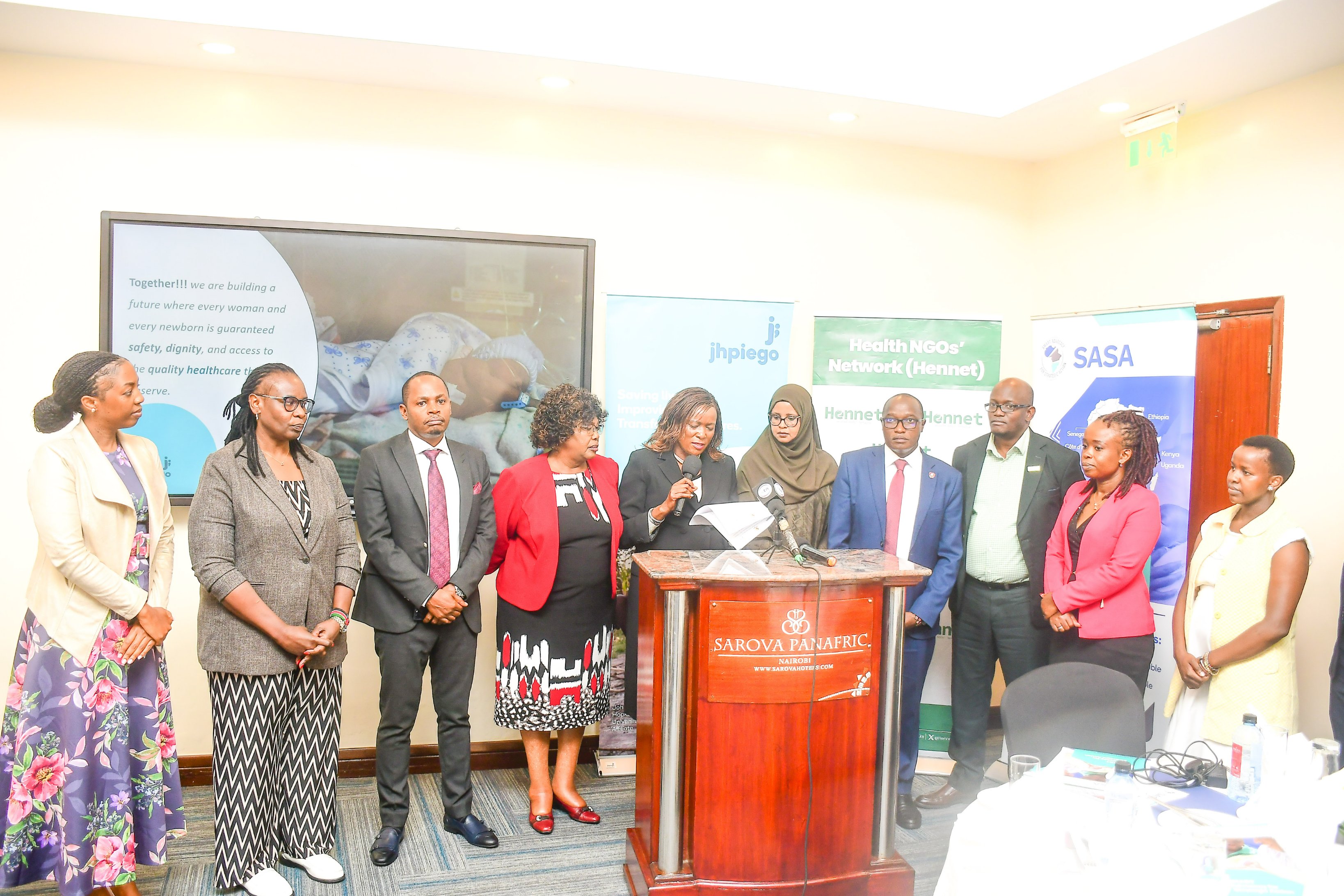
The Kenya Women Parliamentary Association (KEWOPA) has reaffirmed its commitment to advancing the health of women and children in Kenya, with a focus on reducing preventable maternal and newborn deaths.
This came during a high-level forum on Reproductive, Maternal, Newborn, Child, and Adolescent Health and Nutrition (RMNCAH+N), themed Accelerating Policy Reforms for Improved RMNCAH+N in Kenya.
The high-level forum was organised by Health NGOs Network (HENNET) and Jhpiego.
Members emphasised the pivotal role of the Social Health Authority (SHA) in expanding healthcare coverage and ensuring quality care for mothers and newborns.
The forum, attended by KEWOPA members and male parliamentarians, highlighted the importance of policy reforms and dedicated funding to address gaps in maternal and newborn services nationwide.
Participants acknowledged progress in maternal and child health, including a decline in maternal mortality from 362 deaths per 100,000 live births in 2014 to 335 in 2022, alongside improvements in skilled birth attendance and postnatal care.
KEWOPA Chairperson Leah Sankaire said, “We recognise that while investing in the life of the mother is critical, it is equally important to invest in the life of the newborn. Every mother and every child deserves equitable access to quality, life-saving care.”
She urged the Ministry of Health, the National Treasury, and county governments to allocate funding for the operationalisation of Neonatal Intensive Care Units (NICUs) in all 47 counties, noting that current coverage stands at 37 per cent.
Sankaire highlighted ongoing reforms such as the professionalisation and financing of community health promoters, while acknowledging that newborn care still faces challenges, including workforce gaps and limitations in specialised services.
She called for the expansion of SHA coverage to include postnatal care for up to 28 days, along with vital interventions such as phototherapy, oxygen, and IV fluids.
KEWOPA also commended government investments in oxygen infrastructure, which have enhanced emergency care for children with pneumonia.
The association emphasised the importance of strengthening maternal and perinatal death surveillance and response committees to improve accountability and quality of care at the county level.
On transparency, Sankaire requested updated information on maternal and newborn health outcomes, financing, service coverage, and stock levels of essential supplies.
She reaffirmed KEWOPA’s dedication to championing these reforms in Parliament, stressing, “We must ensure that every mother and newborn has equitable access to comprehensive, quality care if Kenya is to meet its Sustainable Development Goals target by 2030.”
Through sustained advocacy, KEWOPA aims to leverage the establishment of the Social Health Authority, which replaced the NHIF in 2024 and introduced three specialised funds targeting primary health care, social health insurance, and emergency chronic illness.
These reforms currently provide health access to over 4.5 million Kenyans and support more than 550,000 deliveries in the first year. KEWOPA continues to call for expanded coverage and strengthened services to further reduce preventable maternal and newborn deaths.














